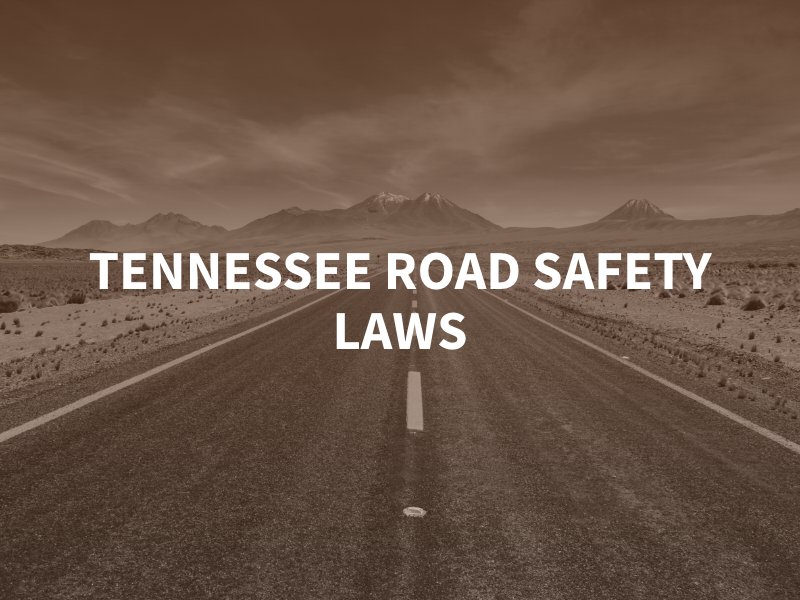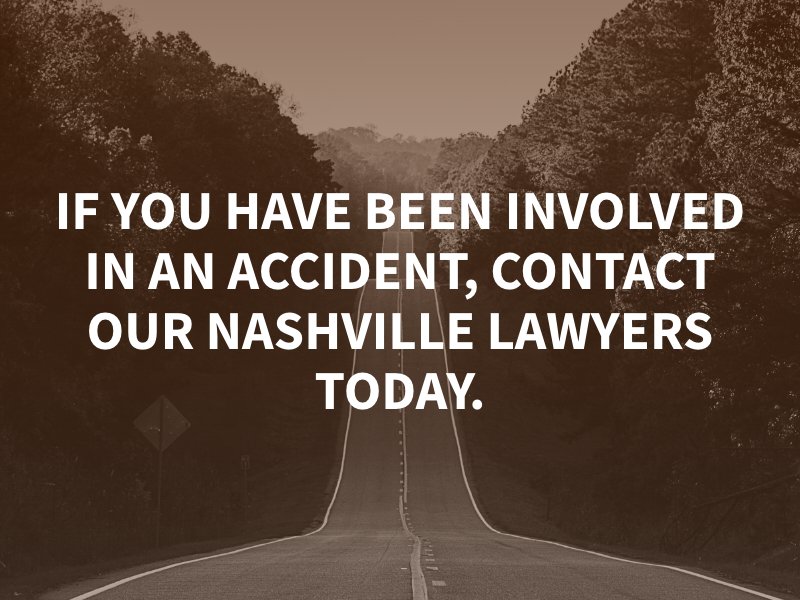Tennessee Road Safety Laws
Posted in Truck Accidents on July 16, 2023
Any individuals who live in Tennessee or plan on driving through the state must understand some of the most basic safety laws. Whether we are discussing distracted driving, speeding, or safety in a construction zone, the following ten laws we want to summarize in Tennessee help increase overall safety for residents, workers, and visitors alike.

Texting While Driving Law (TCA 55-8-199)
Texting while driving is illegal in Tennessee. Tennessee Department of Safety and Homeland Security, the Tennessee Department of Transportation, and the Tennessee Department of Tourist Development all worked together to create the hands-free law currently in place in Tennessee. Under this law, individuals are not allowed to hold a cell phone or other mobile device with any part of their body while operating a vehicle. They cannot write, send, or read any text-based communication. Additionally, drivers cannot watch movies or videos on a cell phone or make movies or broadcasts.
Move Over Law (TCA 55-8-132)
Drivers must yield the right-of-way to stopped emergency vehicles with activated emergency lights by moving into the closest available lane or slowing down and providing space. The move-over law was passed in 2006 in an effort to protect first responders and other parties responsible for roadway maintenance. The law was expanded to include utility service equipment in 2011.
Seat Belt Law (TCA 55-9-603)
Buckle up, Tennessee, because it’s the law. The State of Tennessee is a primary safety belt state, which means that law enforcement officials are allowed to pull people over for seat belt violations. In Tennessee, drivers are required to wear their seat belts at all times when operating motor vehicles. Any driver or passenger in the front seat must also wear a seat belt at all times if the vehicle is in forward motion.
Children under the age of 18 operate under Graduated Driver Licensing laws and the Tennessee Child Passenger Safety laws. Drivers are responsible for ensuring they have their own seat belts properly fastened and for ensuring any passengers under the age of 18 in the front or back are properly seat belted in.
Speeding in Construction Zones Law (TCA 55-8-153)
Drivers must obey speed limits everywhere in the state, particularly in construction zones. Violators of this particular law could face a minimum $250 fine. This is considered a Class B misdemeanor if employees of the Department of Transportation or roadside construction workers are present when the speeding occurred.
Handgun Carry Permit Law (TCA 39-17-1351)
Out-of-state residents with legally issued handgun carry permits in their state are allowed to carry handguns in Tennessee, subject to Tennessee laws. In order to carry a gun in a motor vehicle, individuals must be 21 years of age (or 18 years of age or older if currently serving in the military or honorably discharged) in order to have a loaded handgun or ammo in their immediate vicinity. If the driver is in the vehicle, the gun must be kept from ordinary observation. If a driver is not in the vehicle, the gun should be kept from ordinary observation inside a locked glove box, trunk, or other container that is securely fixed to the vehicle.
Tennessee’s DUI Law and Penalties (TCA 55-10-401 and 55-10-403)
Driving under the influence of alcohol with a blood alcohol concentration (BAC) of 0.08% is illegal in Tennessee. Penalties for a DUI conviction will depend on how many previous DUIs a person has, the level of alcohol in a person apostrophe has blood, and whether or not a child was endangered as a result of the drunk driving.
Maximum Length of Recreational Vehicle Combination Law (TCA 55-7-201)
The maximum length of a recreational vehicle combination (either the RV itself or a combination of the RV hooked to a vehicle) is 65 feet. Any towed vehicle must be securely attached to the pulling unit and have fully functional signal lights and brake lights.
Child Restraint Devices Law (TCA 55-9-602)
Children up to the age of 8 must be secured in a child restraint device based on age, weight, and height requirements. Children under one-year-old or any child that weighs than 20 pounds must be secured in a rear-facing child seat system and the car seat must be in the rear of the vehicle if a rear seat is available.
>Children aged 1 through 3 or those that weigh more than 20 pounds must be secured in a child safety seat in a forward-facing position in the rear seat of the vehicle if a rear seat is available. Children aged 4 through 8 and measuring less than four feet nine inches tall must be secured in a booster seat secured with a seat belt.
There are other requirements based on a child’s height and weight, and we encourage you to research Tennessee laws if you and your child will be driving through this state.
Motorcycle Helmet Law (TCA 55-9-302)
Motorcycle drivers and their passengers must wear helmets that meet federal safety standards and are certified by the Department of Transportation (DOT). There is one particular exception written into state law that includes motorcyclists 21 years of age and older operating a motorcycle during a memorial ride with a police escort, funeral procession, or a body escort detail, so long as they do not exceed a distance of 50 miles and a speed of 30 mph.

Open Container Law (TCA 55-10-416)
It is illegal to consume or possess an open container of alcohol while operating a motor vehicle in Tennessee. State law prohibits drivers from consuming or possessing an alcoholic beverage if the beverage is open and immediately able to be consumed or if the seal of the beverage has been broken. However, unlike laws in other states, the open container law in Tennessee does not restrict vehicle passengers from having an open container. These laws only apply to the driver.
Additionally, Tennessee open container laws only apply if the vehicle’s engine is operating. In most states, it is illegal for the driver to have an open container, even if the car is parked and turned off.
If you have been involved in an accident, contact our Nashville, TN truck accident lawyers.




